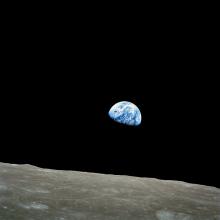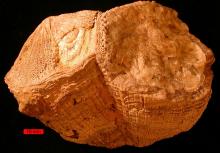Listen to today's episode of StarDate on the web the same day it airs in high-quality streaming audio without any extra ads or announcements. Choose a $8 one-month pass, or listen every day for a year for just $30.
You are here
Rounding Off Earth
Flat-Earthers occasionally show up in the headlines. They raise a bit of a ruckus, demand proof that Earth isn’t flat, then vanish again. But humanity has known that Earth is round for about 2500 years. And some of the first proof was provided by Aristotle, a Greek philosopher and scientist.
Other Greeks had proposed a round Earth before Aristotle’s time. But they didn’t provide any evidence to back it up. In a book published around 350 BC, Aristotle did.
One of his ideas was an early concept of gravity. Based on his observations of how things work, he reasoned that every portion of Earth is pulled toward a common center. That would naturally result in the creation of a sphere, not a flat plane.
Aristotle also knew that if you watch the night sky from different locations, you see different stars. Observers in Egypt and Syria could see stars peeking above the southern horizon that were never visible to viewers who were farther north. That could happen only on a curved surface.
Finally, Aristotle talked about lunar eclipses. As Earth’s shadow passes across the face of the Moon, the edge of the shadow is curved — an indication that our world is round, and not flat at all.
You can see that bit of evidence for yourself late tomorrow night because there’s an almost-total lunar eclipse — Earth’s shadow will cover almost the entire Moon. It’ll be visible across all of the United States. More about that tomorrow.
Script by Damond Benningfield





